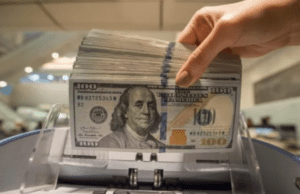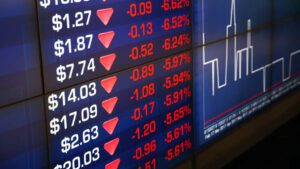
Zurich Insurance Group (Switzerland) celebrates its 150th anniversary this week, according to the insurer’s website.
Since the company was founded in the city of Zurich on October 22, 1872 – originally as a marine reinsurer known as the Versicherungs-Verein – Zurich has grown into a global business spanning more than 210 countries and territories.
“Today, Zurich can celebrate this with its ability to successfully navigate a volatile world,” said Michel M. Lies, Chairman of Zurich. “The last few years have shown that Zurich, as always, is agile and successful, and is in a very strong position. As we celebrate this special milestone, we want to celebrate our history and thank our customers, our communities and our employees in every corner of the world.”
Since the beginning of 2016, Zurich has risen from 10th to 7th place among the largest insurance companies in the world by market capitalization and now ranks 2nd in Europe. During this period, Zurich’s total shareholder return was 145% compared to 27% for the STOXX Europe 600 insurance index, and customer and employee satisfaction improved. This figure was achieved against the backdrop of extreme weather events, a global pandemic, war in Europe and inflation.
Zurich Insurance Group is the largest insurance company in Switzerland, with the US, Germany, Spain, Australia, UK, Brazil and Italy being its second main markets. As of 2021, Zurich was the 75th largest company on the Forbes Global 2000 list and ranked 168th on the Fortune Global 500 list.

Quotes of futures for US stock indices are falling on Friday against the backdrop of continued growth in US Treasury yields, as well as unfavorable corporate news.
Rising interest rates, high inflation and a slowdown in global economic growth affect the financial results of companies. Earnings for the 88 S&P 500 companies that have released quarterly earnings so far are down an average of 2.6%, according to Refinitiv data.
At the same time, in the case of 75% of the reported companies, profits were higher than market forecasts, Market Watch notes.
Shares of Snap Inc. lose in price more than 28% during the preliminary trading on Friday. The company that owns the Snapchat app recorded the lowest revenue growth rate in its history in the third quarter of 2022. The indicator increased by less than 6% in annual terms, to $1.13 billion.
“Our revenue growth continued to slow in the third quarter, driven by a number of factors, including platform policy changes, macroeconomic challenges and increased competition,” Snap said in a statement.
Snap’s management noted that revenue was up about 9% at the start of the fourth quarter and declined to give guidance for the quarter as a whole.
Papers Twitter Inc. fell by 4.2% on the information of the Bloomberg agency that the administration of US President Joe Biden is discussing the possibility of checking some of Elon Musk’s businesses for compliance with the interests of state security.
We are talking about Musk’s SpaceX company, as well as Twitter, which is being bought by a billionaire, informed sources told the agency. According to them, the White House is concerned about Musk’s recent statements about a possible withdrawal of funding for the Starlink satellite communications system for Ukraine, as well as a series of tweets suggesting his ways to resolve the Russian-Ukrainian war.
American Express slipped 4.7% despite the fact that the company, which is one of the leaders in the US plastic card market, recorded net income and revenue in the past quarter above market expectations.
Schlumberger shares rose 1.1% in pre-trade. The American oilfield services company increased its net profit in the third quarter by 1.6 times, revenue – by 28%.
The December E-mini futures for the S&P 500 fell 0.78% to 3646.5 points by 3:55 pm on Friday. The quote of the December E-mini futures on the Dow Jones index fell by this time by 0.7%, to 30,140 points. Futures on the Nasdaq 100 for December fell 1.25% to 10952.25 points.

The US dollar is steadily strengthening against the euro and the pound sterling, having updated a 32-year high against the yen at the auction on Friday.
Experts no longer rule out that the Federal Reserve System (Fed) will bring the base interest rate to 5%, said Francesco Pesole, an analyst for the foreign exchange market at ING. The two-year US Treasury yield topped 4.6% on Friday.
“The outlook for a Fed rate hike continues to cast doubt on the possibility of a sustained rally in US stocks, and the chances that demand for the dollar as a safe haven asset will rise are quite high,” Dow Jones quoted Pesole as saying.
The ICE-calculated index, which shows the dynamics of the dollar against six currencies (the euro, the Swiss franc, the yen, the Canadian dollar, the pound sterling and the Swedish krona), adds 0.56%, the broader WSJ Dollar Index – 0.65%.
The euro/dollar pair is trading at $0.9748 as of 3:00 pm compared to $0.9788 at the market close on Thursday.
The pound sterling has fallen in price by this time to $1.1113 against $1.1239 the day before.
The pressure on the pound is exerted by both political uncertainty in the UK and signals of the continued deterioration of the situation in the country’s economy.
On the eve of Liz Truss announced her resignation as leader of the Conservative Party, which entails her resignation from the post of prime minister, where she worked for only 45 days.
Meanwhile, retail sales in the UK in September fell by 1.4% compared to the previous month, while experts on average expected them to decline by 0.5%. Retail sales last month were 1.3% lower than pre-pandemic February 2020.
The dollar against the yen is 151.54 yen against 150.15 yen at the close of the previous session. On Friday, Japanese Finance Minister Shun’ichi Suzuki again expressed concern about the sharp weakening of the yen and expressed his readiness to intervene to support the national currency.
On Friday, the Bank of Japan continued unscheduled purchases of government bonds for the second day in a row to contain the growth in the yield of ten-year bonds, which rose above the upper limit of the CBR’s target range of 0.25% per annum.
The dollar/yuan pair is trading at 7.2463 yuan/$1, compared to 7.2164 yuan/$1 at the close of the previous session. The yuan is trading near a 14-year low against the US currency during the 20th Congress of the Communist Party of China, which will end on Saturday.

On October 21, Groshik LLC (Kyiv) won the right to privatize the unified property complex (UIC) of the Zalozetsky distillery (the village of Kabarovtsy and the village of Zaliztsi, Ternopil region), which is part of the state enterprise Ukrspirt, for UAH 120 million 500 , which is 3.9 times higher than its starting cost of UAH 30.82 million.
The corresponding results of trading between eight participants were made public on the website of the Prozorro.Sales online platform on Friday.
In addition to Groshik, OOO TD Griner (Kharkiv) offered UAH 120 million 18 for the asset (482 UAH less than the final price of the lot), and OOO Wind Dance (Novomoskovsk, Dnepropetrovsk region) and OOO Agro Fund ( village of Zvinyache, Volyn region) made bids for UAH 115 million.
According to the Unified State Register of Legal Entities and Individual Entrepreneurs, the ultimate beneficiary of the winning company Groshik with an authorized capital of UAH 4 million is Volodymyr Matyash.
According to the state register, LLC is engaged in retail trade in non-specialized stores with food, drinks and tobacco products.
The real estate of the enterprise subject to privatization is located on four land plots in Kabarovtsy and with. Zaliztsakh (Ternopil region). The asset was put up for sale by the State Property Fund on 7 September.
The enterprise includes the main, administrative and production buildings, a bardon pumping station, a silo, a barn, a workshop, an alcohol depot, a gas station, a cowshed, a greenhouse, a transformer room, an alcohol store, hangars, pumping stations, and other facilities, as well as technological equipment and necessary communications .
Dynamics of gold and foreign reserves of Ukraine from 2012 to 2022

http://www.minfin.gov.ua , graphics of the Club of Experts

Stock indices of the largest countries of Western Europe at the beginning of trading on Friday demonstrate negative dynamics, including due to weak quarterly reports of companies.
In addition, investors are worried about the possibility of a deterioration in the state of the world economy against the background of aggressive actions of a number of the largest central banks to curb inflation, reports Trading Economics. The unstable political situation in Great Britain is also negative for the markets.
The composite index of the largest companies in the Stoxx Europe 600 region decreased by 1.5% and amounted to 392.81 points by 11:31 CST.
Since the opening of the market, the German DAX indicator has decreased by 1.6%, the British FTSE 100 – by 0.7%, the French CAC 40 – by 1.7%. The Italian FTSE MIB fell by 1.6%, the Spanish IBEX 35 – by 1.9%.
One of the world’s leading manufacturers of sports goods, adidas AG, for the third time since the beginning of the year, has worsened forecasts of financial indicators for 2022 due to growing stocks of unsold goods and coronavirus restrictions in China. Also, the German company presented preliminary reporting for the third quarter, according to which profit from continuing operations fell 2.7 times, mainly due to a one-time write-off due to the curtailment of operations in the Russian Federation.
Adidas shares fell in price by 8.5% and are the leader of the decline among the components of the Stoxx 600. Quotations of shares of competitors Puma and JD Sports Fashion also decrease – respectively by 5.6% and 5.3%.
The Swedish telecommunications operator Telia in July-September increased its net profit by 8% – up to 1.71 billion crowns ($151.8 million). However, the result did not justify the analysts’ expectation of 2.1 billion euros. The company’s stock price fell by 8.2%.
Quotations of Vivendi shares fall by 4.2%. French media conglomerate Vivendi SA in the third quarter increased revenue by 4.1% to 2.578 billion euros. At the same time, the revenues of the television division of Canal+ Group decreased by 3.3% – to 1.419 billion euros. It turned out to be worse than the consensus forecast.
The value of French L’Oreal, one of the world’s largest cosmetics manufacturers, and Kering SA, which owns well-known fashion brands, decreased by 4.3% and 4.4%, respectively, despite good reporting for the last quarter.
Renault shares fell by 2.2%, although the French automaker also increased revenue in July-September stronger than forecast.
At the same time, the shares of the British food delivery service Deliveroo Plc added 3.2% in price. Gross transaction volume (GTV) in the third quarter increased by 8% and reached 1.7 billion pounds ($1.91 billion).
Retail sales in Great Britain in September fell by 1.4% compared to the previous month, the country’s National Statistics Office reported on Friday. Experts on average expected a decrease of only 0.5%, reports Trading Economics.
Meanwhile, the British consumer confidence index in October increased by 2 points and amounted to minus 47 points, reports GfK NOP Ltd. This is the first increase in the indicator in almost an hour. Prior to that, he had been updating record lows for several months in a row since the beginning of counting, that is, since 1974. At the same time, analysts expected further deterioration of the indicator – on average to minus 52 points.